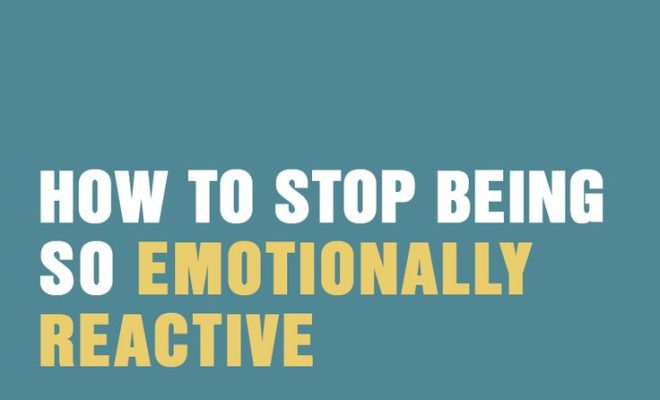How to Be Less Emotional

Introduction
Emotions are an innate part of the human experience, allowing us to empathize with others, express our feelings, and make decisions based on our emotional instincts. However, excessive or persistent emotional reactions can create barriers in our social lives and work environment. Becoming less emotional empowers us to navigate the complexities of our daily lives with greater ease and resilience. This article offers strategies for managing emotions and finding balance.
1.Understand Your Emotions
Begin by evaluating your emotions and identifying patterns in your emotional responses. Recognize what triggers your emotions and categorize them as positive or negative. Understanding the reasons behind your emotions is imperative in taking control of them.
2.Practice Mindfulness
Mindfulness is about being present in the moment and experiencing your emotions without judgment. Notice how you feel without becoming engulfed by it. There are various exercises to develop mindfulness, such as breathing exercises, meditation, or keeping a journal.
3.Establish Healthy Boundaries
Managing the flow of emotions requires setting healthy boundaries for yourself and others around you. Communicate openly with people about your limitations and respect their comfort levels as well.
4.Express Your Emotions Appropriately
Instead of bottling up your emotions, find a suitable way to communicate them, whether verbally or through creative outlets such as writing, painting, or music. Sharing feelings with a trusted friend or family member can release tension while providing valuable insight.
5.Avoid Making Hasty Decisions
Making decisions when feeling overly emotional may lead to poor choices. Take some time to distance yourself from the situation and return with a clearer mind before making important decisions.
6.Develop Healthy Coping Mechanisms
Cultivating healthy coping mechanisms can provide long-term benefits in managing emotional responses. Adopting proper self-care routines involving exercise, hobbies, and spending time with friends improves mental wellbeing while providing an outlet for emotional release.
7.Seek Professional Help
It’s not always possible to navigate the journey of emotional balance alone. Seeking the help of mental health professionals can provide additional support, understanding, and guidance.
Conclusion
While it is natural to experience a wide range of emotions, excessive emotional reactions can be detrimental to our self-esteem and relationships. By understanding your emotions, practicing mindfulness, setting boundaries, expressing emotions appropriately, making wise decisions, developing healthy coping mechanisms, and seeking professional help when necessary, you can cultivate a balanced and emotionally resilient lifestyle. Embracing these strategies empowers you to take control of your emotional state and improve interpersonal bonds while fostering personal growth.






